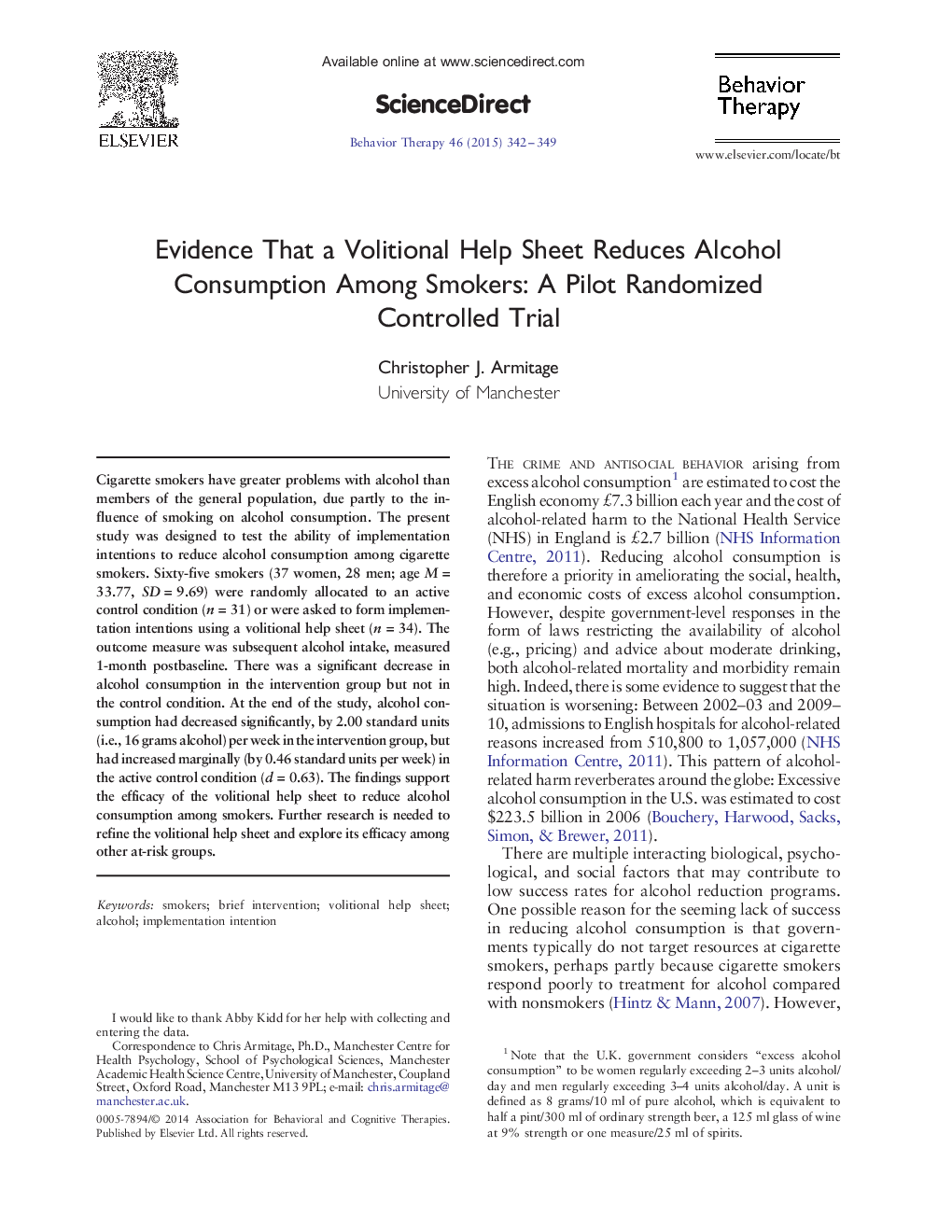| Article ID | Journal | Published Year | Pages | File Type |
|---|---|---|---|---|
| 901257 | Behavior Therapy | 2015 | 8 Pages |
•Smokers are rarely targeted for alcohol reduction interventions.•Excess alcohol consumption is regularly exceeding 2-3 units (women) and 3-4 units (men) alcohol per day.•The study tests a brief novel theory-based psychological intervention to promote alcohol reduction among smokers.•Results show that the brief psychological intervention significantly reduced alcohol consumption among smokers.•The intervention could serve as an adjunct to programs designed to help smokers reduce their alcohol consumption.
Cigarette smokers have greater problems with alcohol than members of the general population, due partly to the influence of smoking on alcohol consumption. The present study was designed to test the ability of implementation intentions to reduce alcohol consumption among cigarette smokers. Sixty-five smokers (37 women, 28 men; age M = 33.77, SD = 9.69) were randomly allocated to an active control condition (n = 31) or were asked to form implementation intentions using a volitional help sheet (n = 34). The outcome measure was subsequent alcohol intake, measured 1-month postbaseline. There was a significant decrease in alcohol consumption in the intervention group but not in the control condition. At the end of the study, alcohol consumption had decreased significantly, by 2.00 standard units (i.e., 16 grams alcohol) per week in the intervention group, but had increased marginally (by 0.46 standard units per week) in the active control condition (d = 0.63). The findings support the efficacy of the volitional help sheet to reduce alcohol consumption among smokers. Further research is needed to refine the volitional help sheet and explore its efficacy among other at-risk groups.
